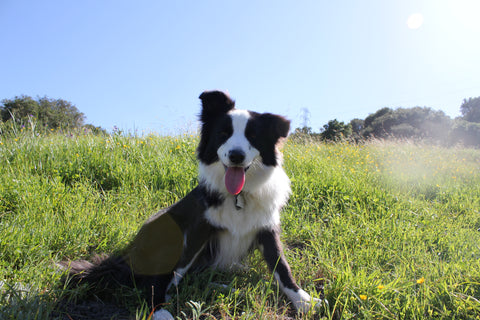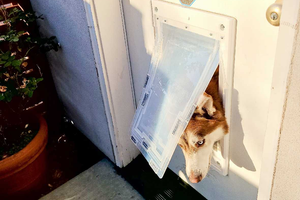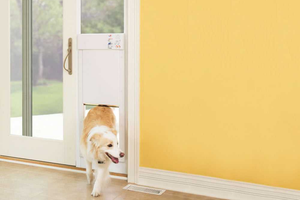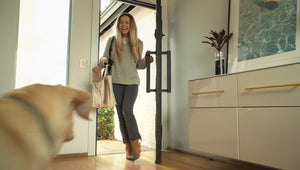Springtime Safety for Outdoor Pets
It’s springtime and your dog or cat wants to go outside and enjoy the great outdoors. But before they run out the pet door, take a step back and make sure you have puppy-proofed the outdoors and taken the necessary cautions for your cat.
There are lots of plants, chemicals, fertilizers, and toxic things to protect from your puppy or cat, so make sure that your garden and surrounding yard are pet-safe before your pets romp outdoors to play. You can't keep outdoor cats from playing outside, but we can show you how to keep a pet safe! Read our tips below for what to look for when making your garden or yard pet-proof.
Poisonous Plants:
One of the main considerations when choosing your backyard greenery is to recognize that many common plants are poisonous to both cats and dogs. This includes outdoor favorites such as sago palm, rhododendron, and azalea. The ASPCA published a full list of toxic and non-toxic plants to make garden planning a breeze.
Check our list of indoor plants that are dog safe.
Additionally, it’s important to avoid any type of plant or tree that can contribute to allergies. Using pollen-free plant species is the best way to ensure your pet’s health – as well as your own!
Fertilizer and Insecticides:
Both of these are often necessary for keeping gardens well fed and healthy. However, they are one of the biggest outdoor cat dangers. Fertilizers can cause serious stomach issues when digested, and insecticides are also highly toxic. When using fertilizer, make sure to carefully read the instructions and keep your pet away from sprayed areas for the necessary waiting time. When using pesticides, make sure to take the same precautions. Always carefully read the manufacturer instructions for proper storage and handling.

Mulch:
It’s important to consider what type of mulch you use for your garden. A popular choice is cocoa bean mulch, which contains theobromine and coffee – common substances found in chocolate – that are toxic to both cats and dogs. If a pet ingests cocoa mulch it can cause seizures, hyperactivity, vomiting, diarrhea, or muscle tremors. But rest assured, there are many safe alternatives for our canine companions. Use substitutions such as shredded pine, or hemlock or cedar bark.
Compost Piles:
Compost piles are a great way to add healthy soil to your garden. It’s great for the plants and for your greenery. However, make sure that compost piles are inaccessible to outside cats and dogs– especially if you have a pet that loves to dig in the trash. Certain products such as specific fruits and vegetables, moldy food, or coffee can pose a danger to pets. So be sure when composting to keep your pets away – it’s the best thing for our canine companions.

Outdoor Access:
Once you have your garden fully pet-proofed, don’t forget the most important part – letting your furry friend outdoors to roam! Installing a dog door or cat door is simple and lets your outdoor cat or energetic puppy easily explore the outdoors. Easy and safe access to the outdoors is the final step we have on how to dog proof your yard! There are lots of benefits of outdoor cats. It helps stimulate them and let them roam. Be sure to make the great cats outdoors the safest place for them!





